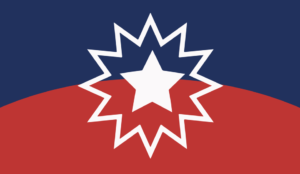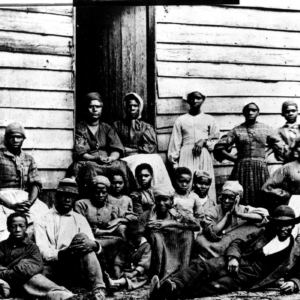
By Sydni Dobson
With the recent events of the world, there isn’t much worth celebrating about – especially if you’re a person of color. Yet, this Friday marks the 155th anniversary of Juneteenth in the United States. On June 19 – also known as “Juneteenth” – African Americans nationwide will celebrate their own Freedom/Emancipation Day with cookouts, parades, concerts, festivals and rich African American traditions.

Juneteenth Flag, Wikimedia Commons
Dating back to the Civil War, Juneteenth is the oldest nationally celebrated commemoration of the end of slavery in the United States. The holiday originated in Texas when, led by Major Gen. Gordon Granger, an estimated 2,000 Union soldiers arrived in Galveston on June 19, 1865 to announce that the Civil War was over and slavery had been abolished. In his statement, Granger publicly read General Order No. 3, stating, “The people of Texas are informed that, in accordance with a proclamation from the Executive of the United States, all slaves are free.” However, this order only applied to Confederate states, and not Union ones.*
Following Granger’s announcement, 250,000 enslaved people were freed that day – this event was known as the “scatter.” Many left Texas immediately and headed north or to nearby states in search of family. In fact, the news was so sudden to some that many formerly enslaved people stayed on their masters’ plantations and continued working for “wages.” Yet, the news shouldn’t have been so sudden; enslaved people had technically been granted freedom two and a half years earlier through the Emancipation Proclamation.
On September 22, 1862, President Abraham Lincoln issued the preliminary Emancipation Proclamation, which declared that, as of January 1, 1863, all enslaved people residing in rebellion states against the Union “shall be then, thenceforward, and forever free.” However, the news of the Proclamation didn’t travel to the ears of those who it benefited the most: enslaved people. Recordings in history report that many slave owners in Texas intentionally withheld information about the Proclamation in order to keep their labor force intact.

Getty Images
Although enslaved people in Texas were informed of their freedom at a later date than those in the rest of the Confederate states, Granger’s arrival and announcement launched an instant celebration. However, it wasn’t until more than 100 years later, in 1980, that Texas recognized Juneteenth as an official state holiday. Overall, Juneteenth celebrations grew popular among the Black community in the middle of the 20th Century, especially after the Civil Rights Movement of the 1960s.
This year, the celebration of Juneteenth falls in the middle of a global pandemic and amidst nationwide protests against police brutality and the unjustified killings of innocent Black people. The Black Lives Matter movement, and America’s long-standing history of systemic racism, are gaining attention. Countries and companies across the world are announcing their stand in solidarity with the African American community and other people of color who have faced racism, oppression and injustices for decades. Unfortunately, we still live in a society that doesn’t treat all human lives as equal; the oppression of Black people must stop. The Black community needs more.
Now, more than ever, civil rights leaders and advocates are demanding an end to systemic racism and the killings of unarmed and innocent Black people at the hands of the police. Since the influx of highly-publicized murders by police in recent years, new laws have passed and several bills were introduced in Congress in June alone to advance police reforms. People of all races have joined protests in all 50 states and globally, seeking change in the protection and respect of Black lives.
Juneteenth is not something many people learn about in school. However, this year is different. With Juneteenth’s arrival just around the corner, people across the country are learning about the significance of this holiday for the first time. African Americans across the nation will collectively celebrate their Freedom Day as they’ve become more aware of this celebration and of their history in our society. If you’re like me, maybe this year has offered an opportunity to become more educated on the Juneteenth holiday. Maybe, like me, you believe Juneteenth should be celebrated in the same way the United States honors Independence Day on July 4.
Currently, Juneteenth is recognized as a state holiday in 47 out of 50 states but isn’t recognized as a national holiday. Going forward, America should recognize its two “Independence Days” and honor the history and contributions of the more than 40 million Black and African American people living in our country. Until then, the Black community will celebrate its existence and freedom with Juneteenth and with fun African American traditions – because if we don’t celebrate us, then who will?
*(Note: It wasn’t until the 13th Amendment, which was ratified on December 6, 1865, that enslaved people were freed everywhere in the United States.)


































































